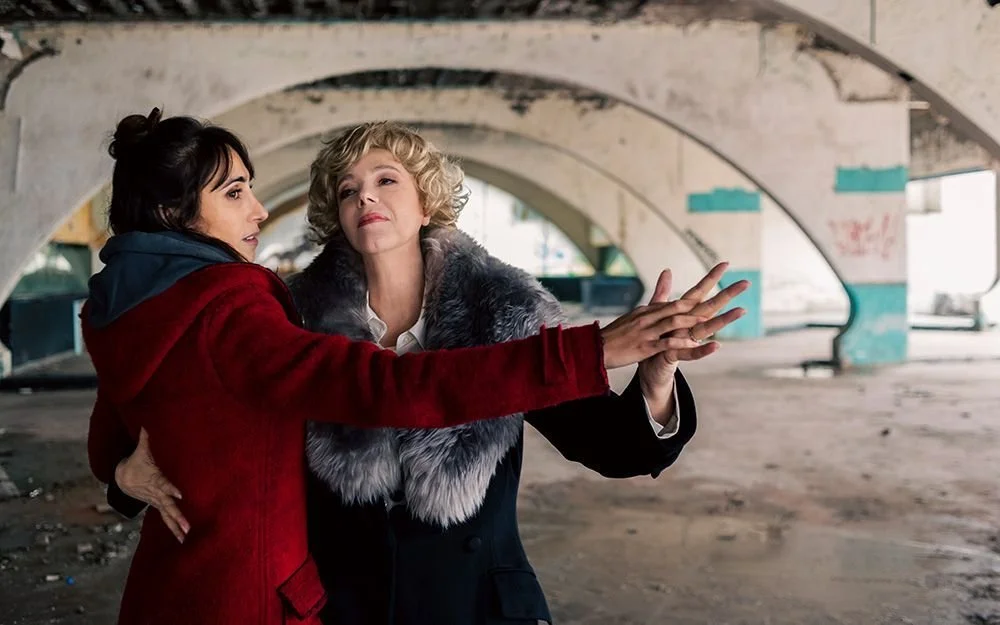Acqua e anice tells the story of Olimpia (Stefania Sandrelli), or rather......no. Acqua e anice is
Olimpia's story; it is the story she has staged for us. Olimpia Belloni is a singer from Romagna who,
just in her seventies, does not want to resign herself to the passing of time and therefore seasons her
life with some 'caprices', as her dance-hall band used to be called.
Among these caprices seems to be the stage journey she decides to undertake to Zurich, where a
friend lives, stopping off at her sister's golden wedding and at the places where old friends and
colleagues reside. To drive the ramshackle red van, however, Olimpia needs a driver and so hires
Maria (Silvia D'Amico), a 30-year-old woman who is the complete opposite of her new owner:
introverted and full of regrets.
Up to this point, there would seem to be all the ingredients for a piadina roagnola-tasting road movie,
but Acqua e anice is not just that. Olimpia is not only the protagonist of this story, but she is also, in
a certain sense, its writer and director (actually, the director is Corrado Ceron, who also signs the
screenplay together with Federico Fava and Valentina Zanella). If, for example, you watched this
film in one of those cinemas that are also theatres, you might have doubt that you are on a wrong
night. Indeed, each stage of the journey follows on from the previous like the acts of a play in which
Olimpia perfectly portrays the role of the prot-agonist, but in the Greek meaning: the first and
fundamental character on stage, the one that all the others, like led by threads, must follow. As from
one act to the next, Olimpia always changes her clothes, even alternating her picturesque wigs that
are so out of tune with the anonymous clothes of Maria, who does not even seem the protagonist in
her own story. In the same style, the encounters with old friends are told almost like short sketches,
typical of the dance halls that have been home to our sprightly singer for years. In each of these,
Olimpia seems to alternate between the roles of human and of a divinity capable of dispensing
judgement and advice to those to whom she gives the grace of a greeting during her journey.
The story staged by Olimpia, however, begins soon to betray shadows. In fact, the diva appears alone,
both in the narration, where no other character seems actually to be able to understand her, and
technically on the screen. The actress is often framed alone and, when together with other characters,
she always appears physically a little further away from them. In fact, the actors are always positioned
at different distances from the camera, which is also set up to emphasise these separations. So arises
the portrait of an increasingly lonely woman showing signs of dementia that she is perhaps no longer
able to hide.
Along the journey, the relationship between Maria and Olimpia, which we poetically could link to
water, daily, still, almost banal, and aniseed, versatile, a little sour and with a thousand fragrances,
also changes. The different characters of the two mix as in the cocktail that gives the film its original
name (in Italian: Water & Aniseed), making Maria the only one able to see beyond the stage on which
Olimpia performs her show. And it is through Maria's eyes that we glimpse, in the film's final acts,
the intimate secrets of Olimpia's life, understanding her inexorable fate but also, so she hopes, her
recipe for happiness.

